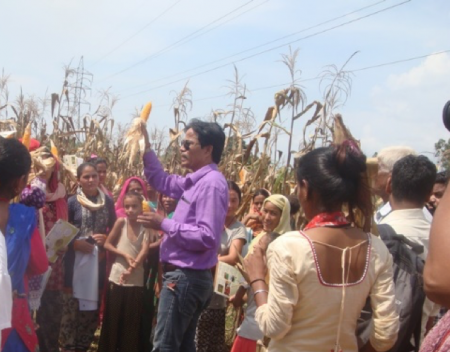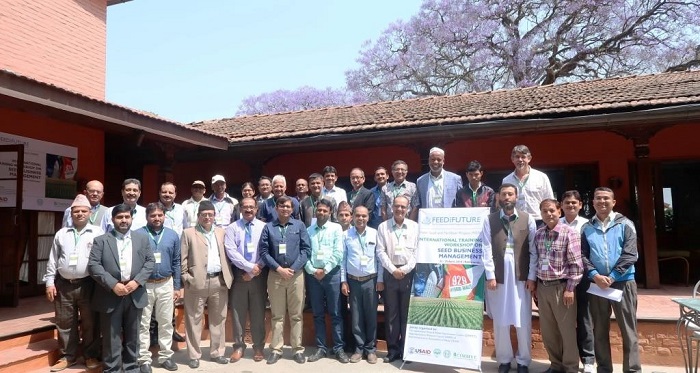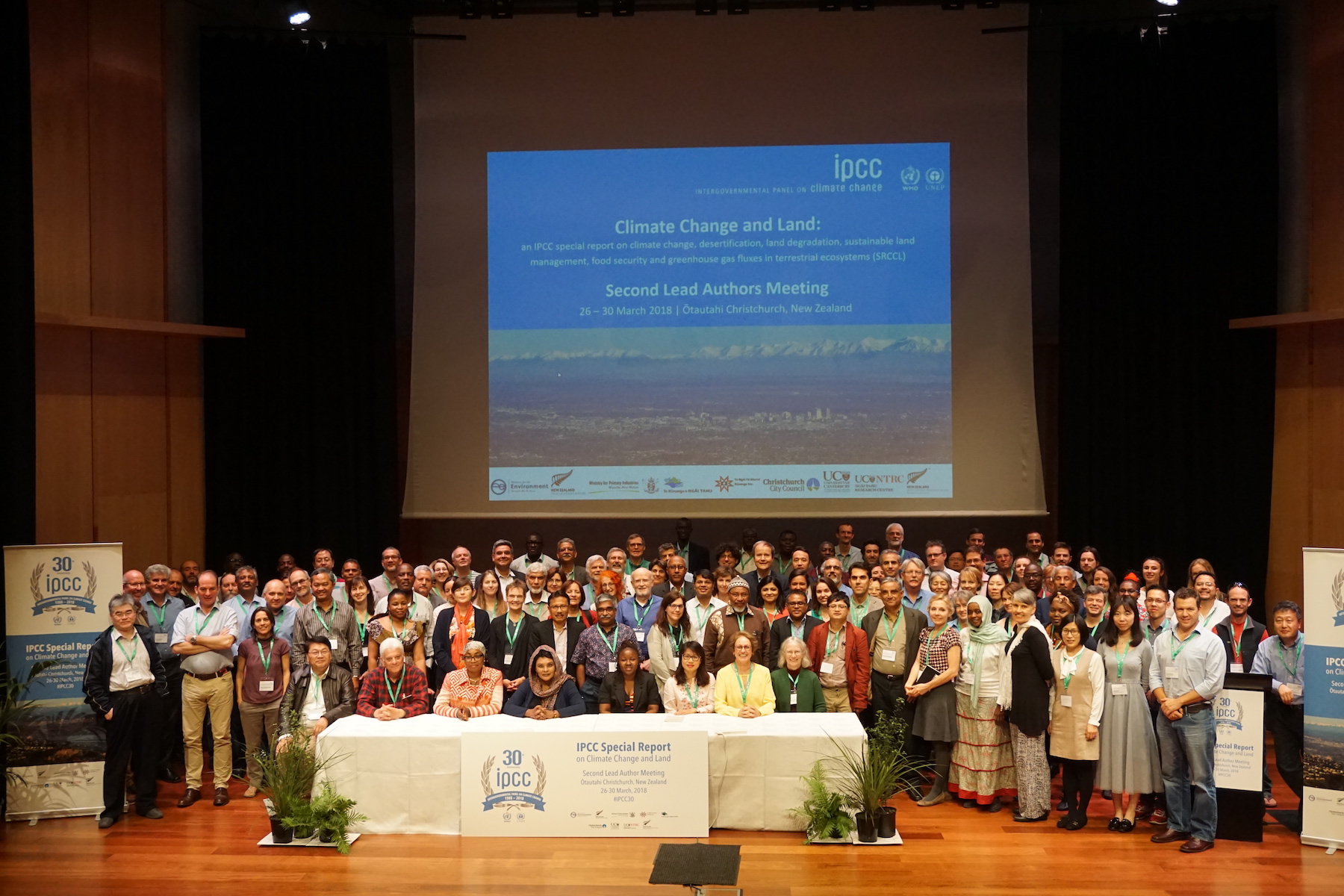Finance is a key driver for agricultural development, as it allows farmers and agribusinesses to improve production efficiency and adopt improved technologies. In Nepal, most of the seed in the formal sector is produced by companies and cooperatives which, like any enterprise, need access to finance in order to grow and increase their capacity.
Nepal’s Agricultural Development Strategy 2015-2035 and National Seed Vision 2013-2025 are key policy documents of the government that provide a roadmap for the development of the agricultural and seed sectors in the country.
In 2017, realizing the need to increase investments in the agricultural sector, the central bank of Nepal, Nepal Rastra Bank, adopted the Priority Sector Lending Programme (PSLP). This program mandates banks and financial institutions to allocate 10% of their loan portfolio to the agricultural sector at a subsidized interest rate of 5%.
The Nepal Seed and Fertilizer (NSAF) project is providing an interface between banks and seed enterprises. Commercial banks are improving their knowledge of the seed sector, its needs and growth opportunities, so they can develop loan products and credit modalities that match the requirements of seed producers and agribusinesses.
These enterprises require finances to upgrade their infrastructure, increase production and grow their businesses. The business plans of seed companies which partner with the NSAF project indicate that the average size of loan required is around $50,000 — 60% for infrastructure development and 40% for working capital. About 66% of the working capital is used to procure raw seed from contract seed growers.

Barriers to lending
Given the huge requirement for finance for seed procurement, access to loans through the PSLP can provide respite to seed companies. However, unlike in other commercial agribusiness, bank lending under the PSLP is uncommon in the seed business, as financial institutions lack understanding of the sector. Many seed companies have not been able to benefit from these loans due to perceived high risks or the lack of business plans and compliance mechanisms required by banks.
In 2018, the NSAF project team assessed the current status, challenges and opportunities in seed business financing through the PSLP. The project also facilitated a seed growers’ lending model through a tripartite agreement between Laxmi Bank Pvt. Limited, Panchashakti Seed Company and seed growers to access loans under PSLP.
On June 14, 2019, NSAF organized a meeting in collaboration with Seed Entrepreneurs Association of Nepal (SEAN) to present findings of their assessments and experiences. The meeting brought together representatives from the Ministry of Agriculture and Livestock Development, national financial institutions, private sector banks, seed companies, agricultural cooperatives and development organizations, who took part in the deliberations and also contributed to refining policy recommendations to enhance seed sector financing.
The assessments showed that PSLP awareness among farmers is low and seed growers borrowing from the informal sector were paying high interest rates, ranging from 24-36% per year. Lack of adequate business plans and compliance mechanisms for seed companies, limited eligibility criteria for PSLP, complex loan acquisition process and collateral issues were some of the factors that made funds largely inaccessible to smallholder farmers. Moreover, the terms and conditions for loan repayment stipulated by banks do not synchronize with the agricultural crop calendar and farm cash flows.

Tailor-made financing solutions
Participants in the meeting discussed ways to create a conducive environment to access financial services for agricultural producers and agribusinesses. Seed companies suggested to improve banks and financial institutions’ understanding of the agricultural markets and build their capacity to assess business opportunities. They also requested that banks simplify the documentation process for acquiring loans for farmers.
Participants from the Kisanka Lagi Unnat Biu-Bijan Karyakram (KUBK), a Nepal government project located in Rupandehi district Province 5, highlighted their model where farmers, organized into cooperatives, are linked to the Small Farmer Development Bank, which could be worth exploring in other sites.
Branchless banking promoted by NSAF is a workable strategy to provide financial services to seed growers in remote areas.
The action research also highlighted that innovative modalities, such as group guarantees, can be a feasible approach to mitigate risks to fund seed growers who do not have land registration certificates and whose land rights have not been transferred in their names. In the case of female producers, this is especially helpful, as many women are the lead decision-makers on the land registered under the name of their husbands, who are migrant workers abroad.
Utilizing the learning from this event, NSAF and SEAN will share the evidence-based policy recommendations with the Ministry of Agriculture and Livestock Development, the Ministry of Finance, the central bank and the Bankers’ Association of Nepal.
Through the NSAF project’s facilitation, banks have approved loans amounting to $2.5 million for business expansion of seven seed companies in 2018. The project will continue to support its seed partners in developing and strengthening their business plans and will facilitate linkages with commercial banks.
The Nepal Seed and Fertilizer project is funded by the United States Agency for International Development (USAID) and is a flagship project in Nepal. The objective of NSAF is to build competitive and synergistic seed and fertilizer systems for inclusive and sustainable growth in agricultural productivity, business development and income generation in Nepal.


 Capacity development
Capacity development 


